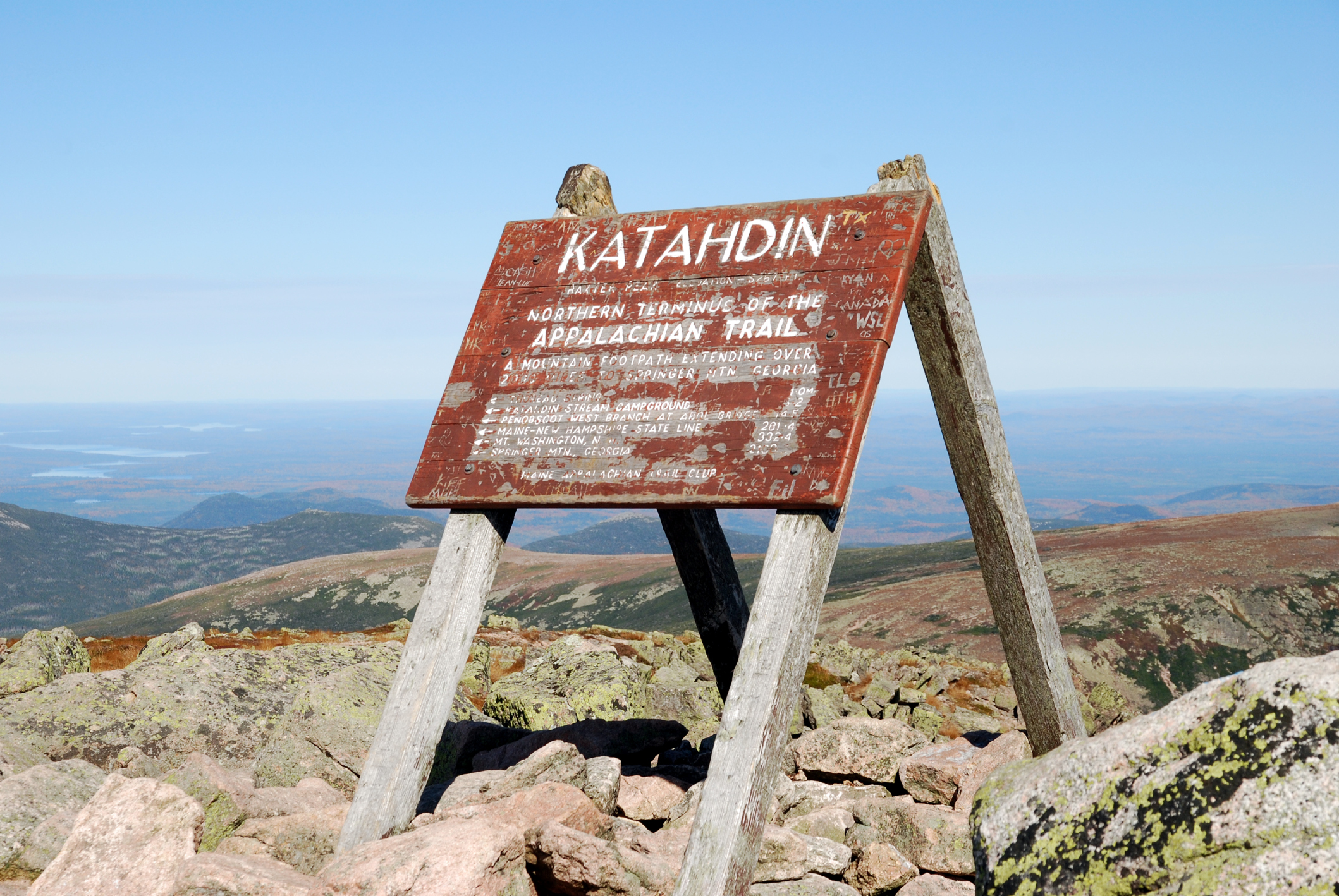
State park officials consider re-routing the Appalachian Trail away from Mount Katahdin in response to growing crowds.
When ultra-marathoner Scott Jurek summited Maine’s Mount Katahdin in Baxter State Park this past July, he set the fastest known time for hiking the full length of the Appalachian Trail. But he also received three citations for violating state park rules in doing so. While Mr. Jurek reportedly accepted a $500 plea deal earlier this month, the attention he brought to Mount Katahdin has reawakened conversations about a possible re-routing of the Appalachian Trail away from the summit.
Word of possible plans to change the terminus of the trail began in November 2014 when Baxter State Park Director Jensen Bissell wrote a letter to the Appalachian Trail Conservancy expressing concerns about hikers’ environmental impacts on the park.
With Baxter State Park serving as home to the northernmost 15 miles of the Appalachian Trail, Director Bissell claimed that Appalachian Trail hikers frequently violate park rules, monopolize Katahdin’s summit, host loud parties, set up camp in unauthorized areas, and generally disrespect the park and wild lands.
Bissell noted that the Appalachian Trail seems to be on a trajectory of “unlimited growth,” with an increasing desire among hikers to “break records,” while the park land “operates on a fixed capacity model.”
The citations that Mr. Jurek received emulate the Baxter State Park letter’s concerns. Despite reportedly recycling the wrappers from every energy bar he ate along his journey, Mr. Jurek received citations from park officials for littering, public drinking, and hiking with an oversized group: all activities that Baxter State Park rules expressly prohibit. In videos and photographs of his record-breaking summit, Mr. Jurek can be seen popping a bottle of champagne while at least eighteen journalists and other hikers look on. The spilled champagne was the basis for the littering citation and Baxter State Park prohibits groups of over twelve people.
While recognizing Mr. Jurek’s “remarkable physical accomplishment,” Baxter State Park officials argue that the event was “incongruous with the Park’s mission of resource protection, the appreciation of nature and the respect of the experience of others in the Park.”
The idea of moving the end-point of the Appalachian Trail precedes what is likely to be increased foot traffic this coming hiking season. A slew of hiking movies made their debut this year, with the most recent, A Walk in the Woods, focusing on the Appalachian Trail. When the film’s corresponding book came out in 1999, the Trail saw a 40 to 60 percent increase in foot traffic. After Wild, a movie about the Pacific Crest Trail, made its release in late 2014, the trail experienced a significant upsurge in popularity. The Pacific Crest Trail Association soon implemented a permitting system to limit the number of long-distance hikers.
Morgan Sommerville, Southern Regional Director of the Appalachian Trail Conservancy, said that the Appalachian Trail will not be able to sustain a similar surge in popularity. “If we get a 60 percent increase next year,” Sommerville noted, “it’s not going to be good for anyone.”
Sommerville’s comments reveal that the health of the entire trail—not just Mount Katahdin—may be at risk.
Jeff Marion, a researcher commissioned by the National Park Service, is studying hiker impact and sustainability on the Appalachian Trail. “There’s litter at shelters, people leaving used toilet paper right on the trail, hikers throwing used batteries into the fire,” Marion says. Development managers recognize growing signs of erosion and species endangerment: a testament to the Trail’s growing popularity.
Beyond a possible re-routing of the trail’s final miles, park and trail officials are considering a number of new policies, including establishing a permitting system and carrying capacity for long-distance hikers and implementing stricter rules and regulations.
Not only are park officials concerned, but many trail hikers themselves have expressed concerns about growing crowds and instances of impertinent hikers. “One person’s endeavor should not detract from another’s wilderness experience,” said Jennifer Pharr Davis, the previous Appalachian Trail record holder.
The Appalachian Trail, measuring approximately 2,168.1 miles and stretching from Georgia to Maine, is one of the longest footpaths in the world. Only about 20 percent of hikers who begin the trail complete it. For those who do, it takes on average between five and seven months to complete.



